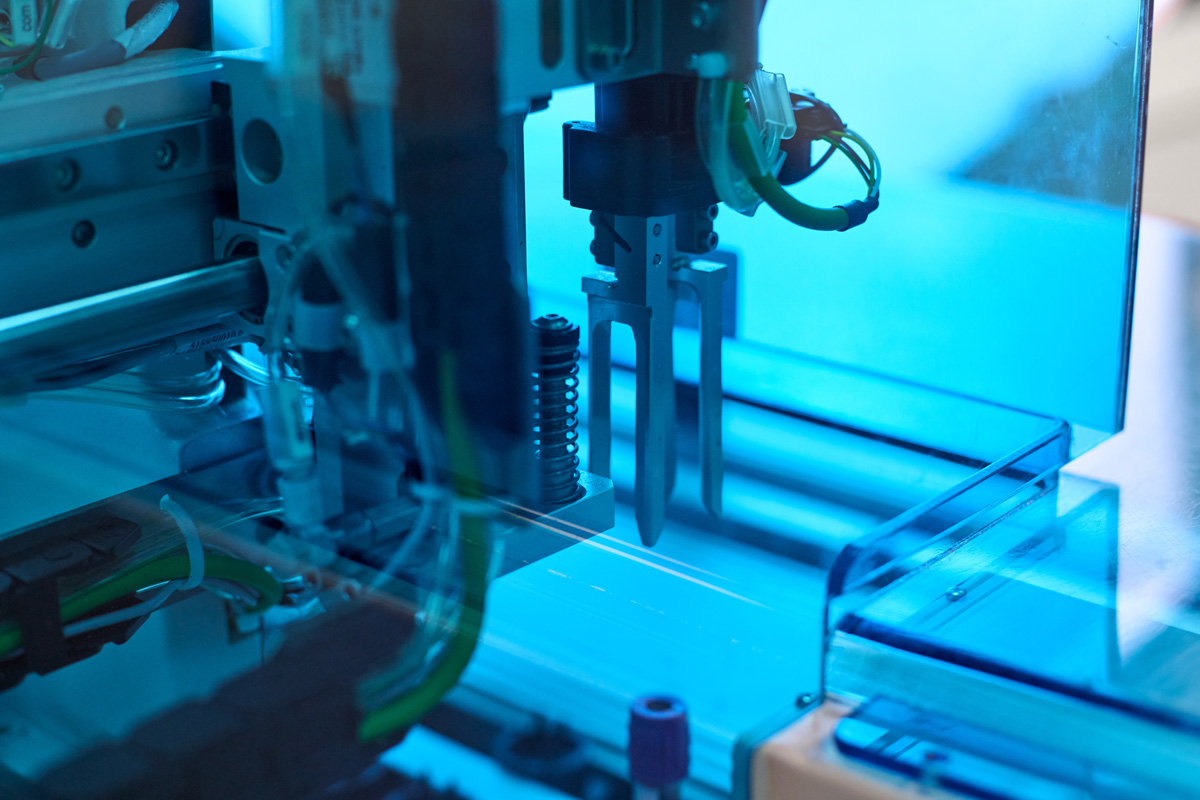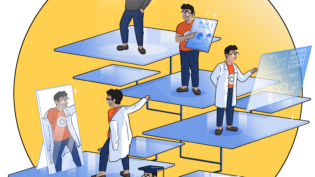
Fuels of the future
Written by
The challenge of finding alternatives to fossil fuels calls for a new way of doing research
Alex Hammer and his cofounders are looking for the needle in the hay, or rather: the needle in the universe. The team of computer scientists and chemists is researching new energy materials that can replace the carbon-emissive fuels of today. But what if research can take decades in the face of the looming climate crisis? Combining artificial intelligence and robotics, they hope to make the discovery that can transform the global economy in a race against time.
Alex, what stands in the way of a clean energy transition?
For this to happen, the global economy must change. The chemical industry, the transportation industry, and products of everyday life are still relying on coal, oil, and gas. Decarbonising traffic is an important factor. Some industries are harder to decarbonise, such as aviation or shipping. A battery that could power a container ship is very difficult to make and we haven’t found an alternative to fossil fuels.
Why is it so difficult to develop clean energy materials like carbon-neutral fuels?
Burning fossil fuels produces H₂0 and C0₂ molecules. For a circular carbon economy, we need to do the reverse. We need to discover a new process that takes those inert molecules and converts them to some sort of value-added material. This is why we look at catalysts. A catalyst reduces the activation barrier of a chemical process. In other words, a catalyst makes otherwise impossible chemistries possible.
What goes into finding new catalytic processes?
Discovery in this field is very unpredictable because catalysis is still poorly understood. It is trial and error research: You try a material, see if it works, spend three years studying it, and then you move on to the next candidate. This is an inefficient and costly process. Catalysis research suffers from a few constraints. There are endless combinations between different elements, ratios, and processing conditions. There are likely more materials than there are atoms in the universe! It would be impossible to try them all. And to be frank, we are running out of time. Our aim is to accelerate the process of catalyst discovery.
… with a solution that combines chemical robotics and AI.
AI has the potential to help us to understand this black box of catalysis better. But one of the limiting factors is the data. Without good data, it is “garbage in, garbage out”. This is where chemical robotics come in! The idea is to build automated systems that can perform experiments. We are taking it one step further: a self-driving lab does an experiment, analyses it, and decides what the next experiment should be.

You and your team recently won a €120,000 grant in a pitch competition after participating in our “Your Online Pitch” webinar. Which of the learnings helped you to convince the jury?
It was my first pitch training! I liked that we approached the pitch like a storytelling problem. By breaking down the problem, making it relatable, and talking directly to the audience, people stay engaged with your story. Those were new elements I picked up on that I included in our pitch.
What will be the next steps with that money in the bag?
The next milestone would be demonstrating the proof of concept, which we will likely be able to do this year. We have a problem and a solution in mind, but we yet have to show that it works. Then, we are looking at raising a larger sum of money in the seed round, to grow the team and get started working on the real problem. Fun fact: catalysts drive 90% of chemical processes. These processes impact 30–40% of the world’s GDP. If we are successful, we will change the world, but getting there will be difficult.
You already managed the first important step: bringing together the right people. How did your team of cofounders meet?
Markus and I had been working together in the space of robotics and machine learning for 3–4 years. We knew about these tools, and we wanted to apply them to the right cause. We met Ahmed through COP26 in Glasgow, the city we currently live in. He is a catalysis expert with 12 years of experience working in the industry. He was the missing link to make it all come together.
What is your superpower as a team?
We all have different technical expertise, but we all have been standing in the lab at some point in our lives. We all speak and understand the same language of chemistry, as well as some computer science, some automation, and some catalysis. That combined with our joint vision to make an impact on the world, we are unstoppable •







